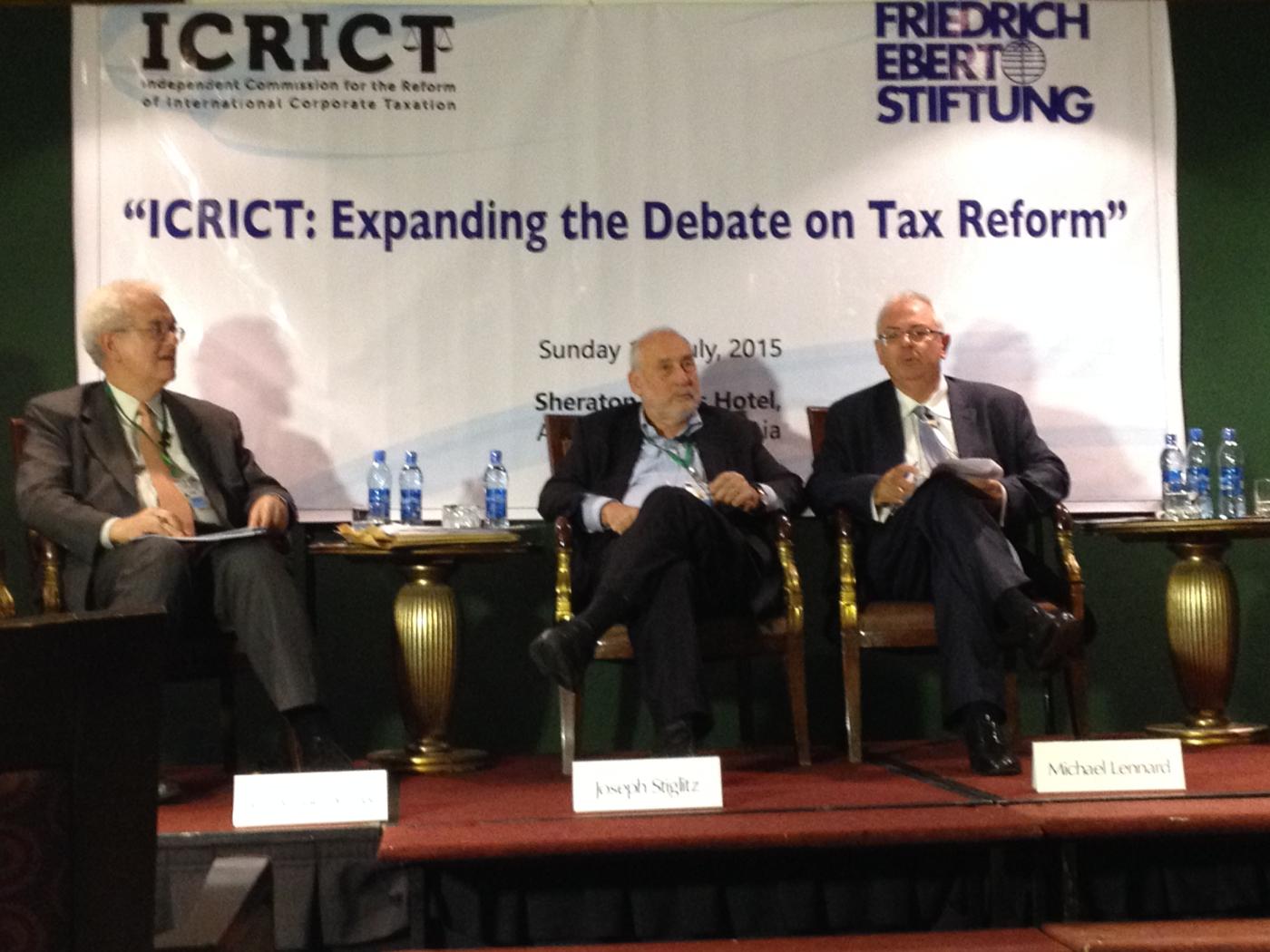Speaking about the place of taxation in development, taxation was called a “moral issue” by Rev. Suzanne Matale, general secretary of the Council of Churches in Zambia, during her participation at the 3rd United Nations Financing for Development Conference currently underway in Addis Ababa, Ethiopia.
“Tax is a predictable source of domestic finance that serves as a bridge between haves and have nots, and it must be used to better people’s lives,” said Matale, who represents the World Council of Churches (WCC) at the Independent Commission for the Reform of International Corporate Taxation (ICRICT).
She called on African governments more effectively to tax and regulate multinational extractive industries that are plundering the region’s resources. “We cannot depend on foreign aid,” Matale added.
The UN conference in Addis Ababa is debating a proposal for the creation of an inter-governmental global tax body where developing countries would have a voice in agenda-setting. Governments of richer nations have been stalling its establishment. Yet for many decades developing nations have suffered massive outflows of resources (amounting to USD 138 billion a year according to an ActionAid study) due in large part to a global tax system that enables huge tax breaks for multinational corporations.
The proposal for a global tax body is supported by the ICRICT. The Commission has urged the UN member states to upgrade the UN Committee of Experts on International Cooperation in Tax Matters to an Inter-governmental Commission, providing adequate resources to the committee.
The WCC is among the organizations responsible for the establishment of the ICRICT.
“We need a global tax system that sets tax rules in the interest of the people, especially the impoverished, instead of corporations,” said Athena Peralta, consultant for the Economic and Ecological Justice programme at the WCC, following discussions at the UN conference in Addis Ababa.
“This approach is among the major themes addressed in the document Economy of Life Now: An Ecumenical Action Plan for a New International Financial and Economic Architecture,” said Peralta.
The document was produced in 2014 by the Ecumenical Panel on a New International Financial and Economic Architecture convened by the WCC, the World Communion of Reformed Churches, the Lutheran World Federation and the Council for World Mission as a follow up to the São Paulo Statement on International Financial Transformation for an Economy of Life.
Recognizing major flaws in the global tax system and its contributions to poverty and inequality, the ICRICT presented its proposal to revamp the global tax system in a series of panels at the Addis Ababa conference.
The Nobel prize-winning economist Joseph Stiglitz said it was “unconscionable” that not only had governments of wealthy nations failed so far to live up to their commitments to raise official development assistance and climate finance, but they have also “harmed” already impoverished countries by failing to compensate them for resource extraction.
Eva Joly, a politician for Europe Écologie – The Greens, emphasized that taxation is instrumental in overcoming poverty and therefore, ultimately, taxation can promote peace and is a peace issue.
More information: United Nations Financing for Development Conference
Declaration of the Independent Commission for the Reform of International Corporate Taxation
Independent Commission Calls for a Just and Equitable Global Tax System (WCC news release of 4 June 2015)
São Paolo Statement: International Financial Transformation for an Economy of Life





